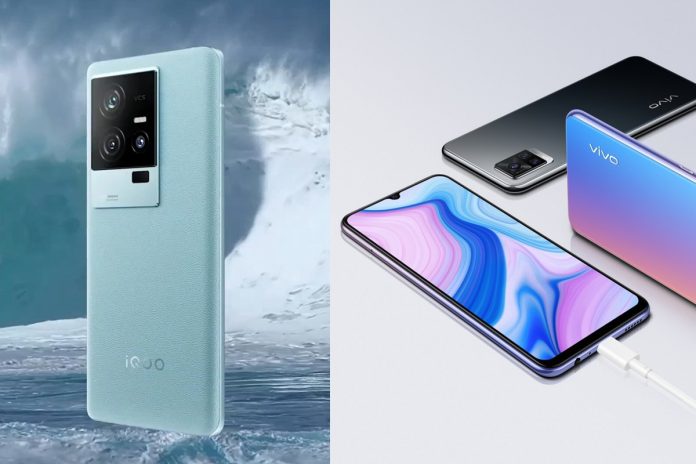Business News: Mobile retailers in India are urging the central government to ban Chinese-owned brands such as iQoo (Vivo), Poco (Xiaomi), and OnePlus (Oppo) from operating in the country, accusing them of engaging in anti-competitive practices that harm local businesses and result in financial losses for the government.
The All India Mobile Retailers Association (AIMRA), representing over 1.5 million mobile retailers, has requested Commerce and Industry Minister Piyush Goyal and Finance Minister Nirmala Sitharaman to revoke the licenses of these companies. According to AIMRA founder and chairman Kailash Lakhyani, despite repeated reports from the Competition Commission of India (CCI), these companies continue to violate regulations by maintaining exclusive partnerships with e-commerce platforms like Amazon and refusing to distribute products through traditional retail stores.
AIMRA claims that this practice of exclusive distribution to e-commerce platforms, combined with the unauthorized diversion of products to retail channels, disrupts the flow of funds and deprives the government of rotational GST benefits. Lakhyani emphasized the need to protect local businesses and ensure fair trade practices in India, particularly as Chinese companies allegedly use online platforms to fuel grey market activities.
In a letter dated September 27 to MP Praveen Khandelwal, AIMRA sought assistance in raising the issue with the Commerce and Finance ministries. Citing a CCI report that uncovered anti-competitive agreements between e-commerce platforms and manufacturers, the association called for the cancellation of licenses for companies that do not support local businesses and fair trade.
AIMRA specifically pointed to Vivo’s sub-brand iQoo, which primarily sells its products online through platforms like Amazon and Flipkart. Despite requests to Vivo and iQoo to supply products to retail stores, AIMRA says retailers continue to face delays in billing and product availability. The association also noted that Vivo is currently under investigation by the Enforcement Directorate for money laundering, and its practices were flagged in a recent CCI report.
Lakhyani highlighted that these brands contribute little to the Indian economy, with their earnings largely retained as Completely Knocked Down (CKD) units. Local traders are left without access to products, and consumers are unable to negotiate prices, further reducing competition by limiting sales to online channels.
A CCI investigation recently revealed that several Chinese smartphone manufacturers, along with Samsung, have been colluding with Amazon and Flipkart to exclusively launch their products on these platforms, in violation of local competition laws. The report implicated companies such as Xiaomi, Motorola, Realme, and OnePlus in these practices. Similar findings were reported regarding Flipkart’s involvement with Samsung, Xiaomi, Motorola, Vivo, Lenovo, and Realme.
In collaboration with the Confederation of All India Traders (CAIT), AIMRA has issued a whitepaper calling for a stronger e-commerce policy to address regulatory gaps, ensure fair competition, and protect consumers. The paper recommends removing GST input credits for B2C transactions to curb tax evasion and banning exclusive cashback offers to prevent anti-competitive behavior. It also advocates suspending e-commerce festival sales to prevent market manipulation and suggests imposing a luxury tax on high-end products sold online to create a level playing field for both online and offline retailers.
CAIT and AIMRA also urged the CCI to suspend the operations of Flipkart and Amazon, accusing them of predatory pricing and offering deep discounts that fuel a grey market for mobile phones, resulting in tax losses. BJP MP and CAIT Secretary General Praveen Khandelwal criticized these e-commerce giants for their pricing practices, suggesting that they have formed cartels with brands and banks to dominate the market. Khandelwal stressed that while retailers are not against e-commerce, they demand a fair and level playing field.

